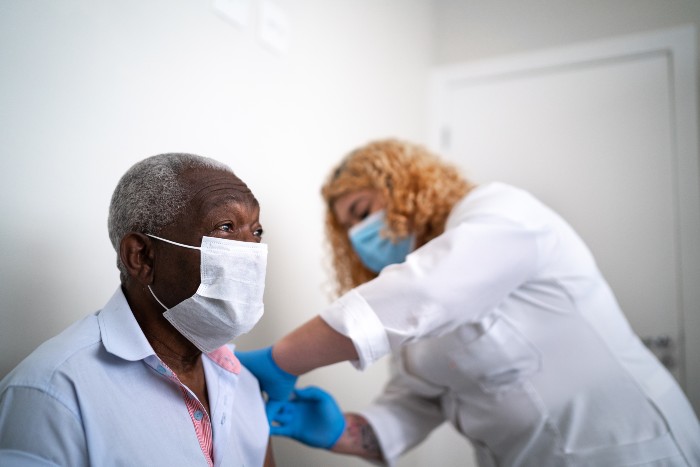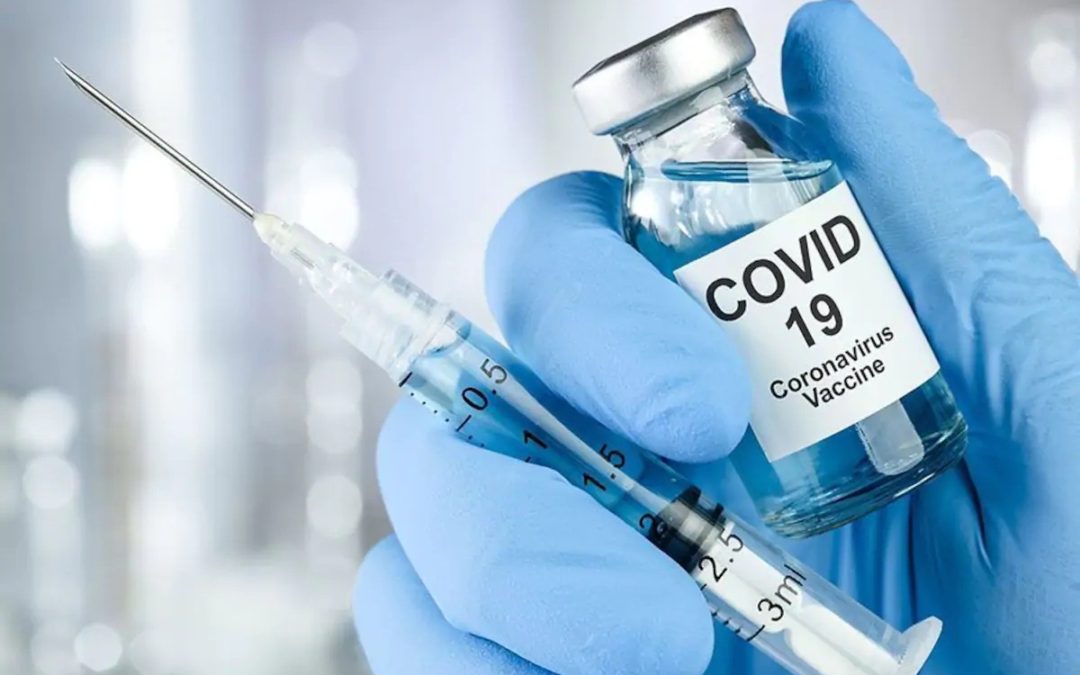Dear Editor,
We echo the concerns raised by authors in this editorial that ethnic minorities may be left out of this vaccination programme. As demonstrated previously, ethnicity has been independently linked to adverse outcomes in addition to age, male sex and comorbidities. Public Health England revealed the death rate from COVID-19 in England to be four times higher for black people and three times higher for Asian people than for their white counterparts, putting the Black Asian Minority Ethnic (BAME) group at a higher risk of COVID-19 [1]. People from ethnic minorities are also more vulnerable to COVID -19 due to the nature of their jobs (often at the front line), deprivation and increased incidence of comorbidities linked to COVID-19 outcomes. The priority list for vaccination published by the Joint Committee on Vaccination and Immunisation (JCVI) should have highlighted ethnic minority groups as one of the top four priority groups along with age, front line staff, nursing home staff and residents [2]. It is appalling that after so much evidence and recommendations, this has been completely ignored. I hope JCVI will revise its guidelines and includes ethnic minorities as a vulnerable group.

Vaccine hesitancy in general is on the rise, with safety being the main point of concern.[3] This is particularly seen in ethnic minority communities, with significantly lower uptake rates in the BAME community[4][5]. As also highlighted in this editorial, a number of surveys have shown a reduced willingness for uptake of the COVID-19 vaccine by ethnic groups [6]. However, looking at surveys more closely, it is apparent that ethnic minority groups want more information and transparency on vaccine trials from the Department of Health. A lack of information results in misinformation from social media.
Furthermore, some adverse outcomes such as Bell’s palsy, allergic reactions and transverse myelitis reported in ongoing trials could discourage the public from participating in a COVID-19 vaccine programme.
It was hoped that JCVPI and Public Health England would have started a programme of education concurrently alongside the vaccination programme, particularly for ethnic minority groups to improve vaccine uptake.
I would like to draw the attention of readers to a recent large survey in the UK of over 4000 individuals on vaccine uptake, conducted by the University of Wolverhampton, UK. The results of the survey are still in pre-print on http://ssrn.com[7]. The survey interestingly showed a high acceptance rate of 79% which is well above the 74% threshold needed for herd immunity. They noted 16 reasons why people may not want to take a COVID-19 vaccine, the majority asking for more data on efficacy and safety. It is therefore important that the department of health makes the results of the vaccine trials clearer to the general public and starts a campaign to build trust. The survey shows South Asian groups had a higher interest towards uptake of the approved COVID-19 vaccine, whilst Black and Chinese communities were reluctant to consider the COVID-19 vaccination (only 1·4% of the study participants were Black , hence this is a small sample size with limitations on outcomes). Similar findings have been seen in previous studies on vaccine uptake in the Black community [8]. This may be attributed to deep-rooted mistrust in medical and vaccine-related research and hesitancy to vaccinate within this community [9][10].

Therefore, Public Health England must focus on this ethnic group more, especially in populations with high proportion of Black communities.
Patients with cancer or those that take immunosuppressive treatments are also hesitant in taking the vaccine, due to concerns about its safety and the belief that vaccines may be suboptimal [11], and ultimately whether the risks of taking the vaccine outweigh the benefits. We urge Public Health England and professional bodies to issue statements, promoting vaccination through the fact that even mounting a mild anti-body response could be beneficial, and will potentially tackle the severe mortality rates in these patient groups. [12].
The uptake of approved vaccines is crucial in the fight against the COVID-19 pandemic. In order to achieve herd immunity, experts’ believe 74% of the population needs to be vaccinated. Public Health England needs to take lessons from these surveys and recommendations from health charities such as the South Asian Health Foundation (SAHF) who work closely with these communities. Key barriers need to be addressed and measures that facilitate uptake of vaccination should be introduced to policy framework. Ethnic minority groups need to be educated and prioritised. This will allow the UK to effectively reach population immunity thresholds nationwide, and control further outbreaks of this rapidly spreading disease. It is pleasing to note that medical charities such as the British Islamic Medical Association (BIMA) have produced position statements on the vaccination and attempt to promote vaccination through educating the public [13]. A positive social media campaign, including promoting ‘role models’ who have taken the vaccine themselves, including doctors from ethnic minority groups, could provide further incentive to take the vaccine. Patients are more likely to accept the vaccine if recommended by their own physicians, and so inevitably, Primary Care holds a higher level of responsibility, with the ability to be at the forefront of public health education.
We all realise the devastation this pandemic is causing, through loss of life as well as through huge financial losses. We are optimistic that widespread vaccine uptake will prove to be a turning point in controlling this pandemic.

